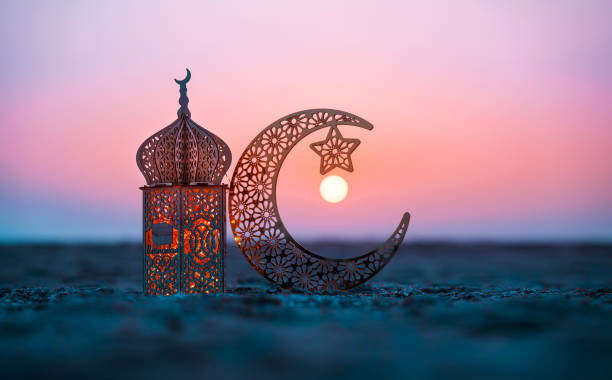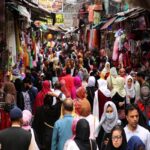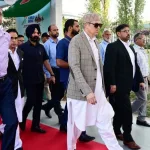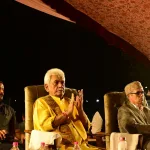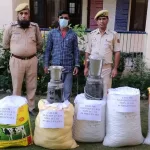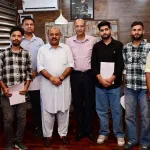Srinagar: While Eid-ul-Fitr is a time of joy and festivity across Kashmir, for thousands of children in orphanages, the day brings mixed emotions. Separated from their families, they face the challenge of celebrating without the warmth of home. However, orphanages in Srinagar are making special efforts to ensure these children feel the spirit of Eid and experience a sense of belonging.
At Rahat Manzil, an orphanage in Bemina run by Jammu and Kashmir Yateem Khaanah, preparations for Eid began well in advance. The orphanage, home to around 306 boys, has been receiving donations of rice, vegetables, bakery items, and cash throughout Ramazan. Ibrahim, a member of Rahat Manzil, shared, “We have no other source of funding. Our only source of income is public donations. Only if people donate does our center run smoothly.”
This year, however, donations have been lower than usual. Despite this, the orphanage has ensured that the children experience the joy of Eid. “We have planned special feasts with biryani and other traditional dishes and have bought new clothes and books for the children. Our goal is to create a festive atmosphere and make them feel cherished, so they know they are not alone,” Ibrahim added.
For many of the orphans, Eid is a bittersweet time. Though they miss their families, the kindness shown by donors and visitors helps ease their loneliness. “Many people visit us on Eid and give us Eidi. It makes us feel that every Kashmiri cares for us,” said 15-year-old Shehnawaz Ahmed, who has been living at Rahat Manzil for several years.
At Bismillah Yateem Trust in Nowgam, chairperson Mushtaq Ahmed Magray also acknowledged the financial struggles affecting donations. “It is unfortunate, but we have done our best to make the occasion special for the children under our care. We have prepared special dishes, purchased new clothes, and provided indoor board games to keep them entertained,” he said.
Magray highlighted how difficult Eid can be for children growing up without families. “We want them to know they are not forgotten and that there are people who genuinely care for their happiness,” he said.
Meanwhile, at Aagosh Sultan-ul-Arifeen Yateem Trust in Parimpora, chairperson Bilal Sultan shared his approach to making the children feel valued. “We provide food kits and clothing to orphans and widows to ensure they feel cared for. This year, we have purchased traditional clothes for them so they can celebrate with dignity and joy,” he said.
In another orphanage in Batamaloo, children eagerly tried on their new clothes. “I got a green kurta with golden embroidery. It’s very pretty,” said Asma, a young girl with a shy smile. Another child, Imad, proudly showed off his new shoes, saying, “I can’t wait to wear them on Eid.”
Orphanages across Srinagar are ensuring that Eid celebrations go beyond material gifts. Special feasts have been arranged with traditional dishes such as pulao, kebabs, and phirni, prepared with the help of local volunteers.
“On Eid morning, we will offer phirni after the prayers. The children look forward to it every year,” said Bilal, a caretaker at an orphanage in Soura.
“Food is a big part of Eid celebrations,” said Amir, a volunteer. “We want the children to feel the joy of the festival through delicious meals.”
Beyond the celebrations, caretakers are focusing on the emotional well-being of the children. “Some children miss their families more during Eid, so we try to keep them engaged and surrounded by positive energy,” said Basharat, a caretaker at an orphanage in Chanpora. “We tell them that they have a big family here that loves and cares for them.”
Psychologist Shabnum, who volunteers at one of the orphanages, highlighted the role of Eid preparations in boosting the children’s mental health. “Feeling included and celebrated helps the children develop a sense of security and belonging. It reassures them that they are cared for and valued,” she said.
Many orphanages are also ensuring that children participate in spiritual activities. Special prayer sessions have been arranged to teach them about the significance of Eid-ul-Fitr. Imams and community elders have been invited to deliver motivational talks, encouraging the children to remain hopeful and determined despite their circumstances.
Several mosques have also collected zakat and fitra (charitable donations) to support the orphanages. “Part of Eid is about giving to those in need,” said a local imam in Bemina. “It’s heartening to see the community come together for these children.”
With these collective efforts, Eid may not bring the warmth of a traditional home for these children, but it will still be filled with love, kindness, and a sense of belonging.


